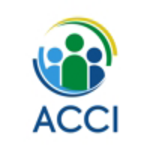
2023 Annual Conference
May 16–18, 2023
Palace Station Hotel & Casino, Las Vegas, NV, US
IMPORTANT NOTICE: The date, time, and room assignment of YOUR presentation is SUBJECT TO CHANGE.
Proposal authors can use this tool to see where they have been placed in the program agenda for an Oral or Poster Session.
Scroll down to search by the Submitter or Author Name, by Date/Time, or by Keywords.
Confirm your place in the schedule by following the instructionss that were emailed to you. Each presentation must have a separate paid registration. Contact the ACCI office immedicately by email at admin@consumerinterests.org to report any conflict, all corrections to the details of the presentation (including author names and the order they are listed as this is how it will be in the final program), or if you have any questions. Please be sure to reference the session title(s), date(s), and time(s) when you contact us.
C3d Undesired Short-Term Financial Behaviors and COVID-19 Stimulus Payment Usage
Short Description
This study examines the use of Economic Impact Payments received during the COVID-19 pandemic in the U.S. During the COVID-19 pandemic, the IRS issued over 472 million Economic Impact Payments (stimulus checks) in three rounds for a total of $803 billion to U.S. households (Pandemic Oversight, 2022). The first round of stimulus checks went out in March 2020 and provided $1,200 per qualifying income tax filer (CARES Act, 2020). The second round of stimulus checks went out in December 2020 providing $600 per qualifying income tax filer (Consolidated Appropriations Act, 2021). The third round of stimulus checks went out in March 2021 providing $1,400 per qualifying income tax filer (American Rescue Plan Act, 2021). Research showed that individuals and households used these stimulus checks for various purposes, and these purposes were different across populations (Baker et al., 2020; Coibion et al., 2020; Liu et al. 2021). The goal of these stimulus checks was to enhance the economic well-being of US households impacted by the COVID-19 pandemic (US Department of Treasury, 2021). The objective of this study is to advance knowledge on how stimulus checks were used in the US, focusing on households with undesired short-term financial behaviors.
Type of presentation
Accepted Oral Presentation